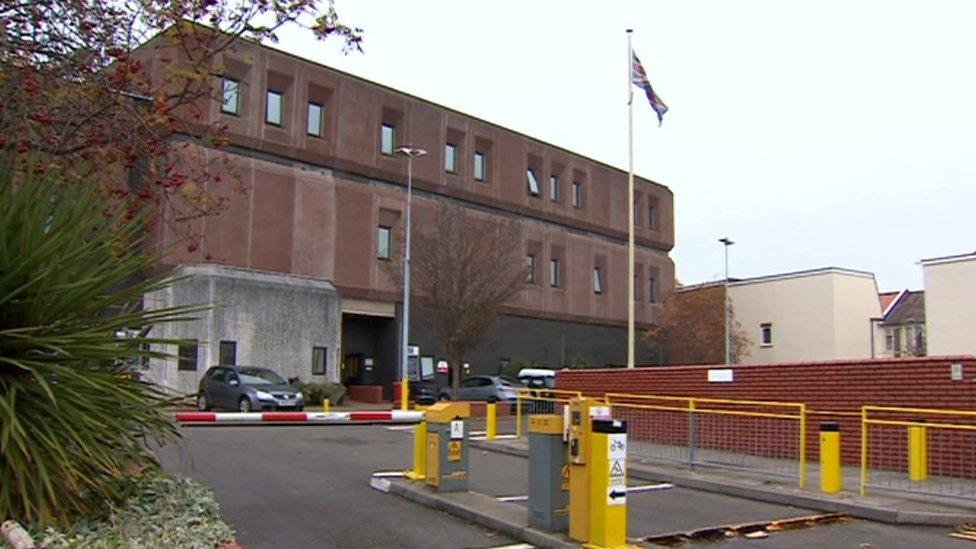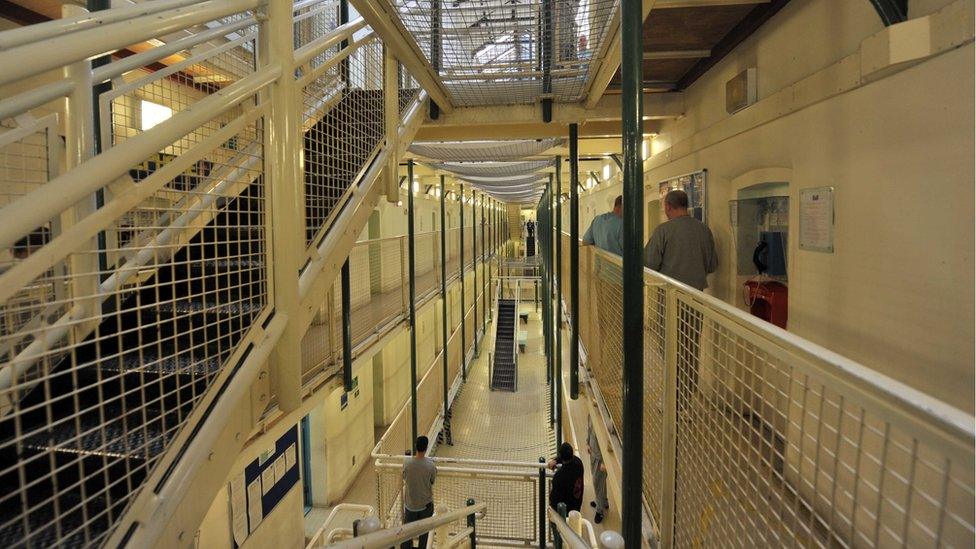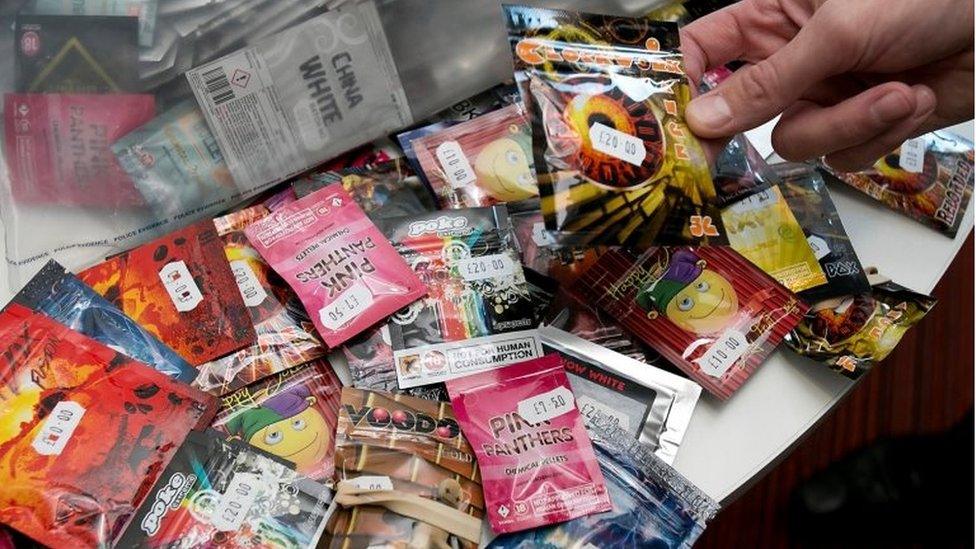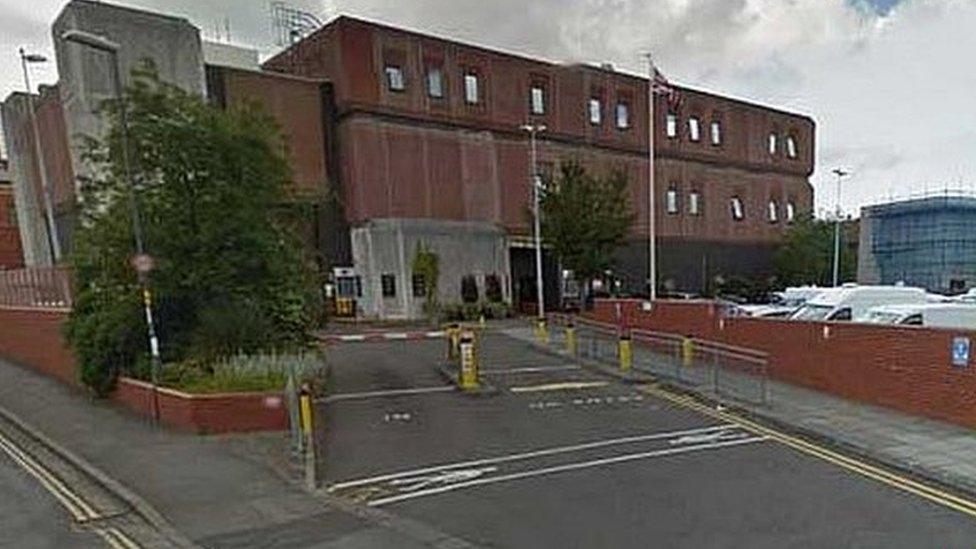HMP Bristol: Substance abuse blamed for 'protracted rage'
- Published

The prison report found staff were reluctant to confront inmates over drug use
An increase in prison violence at HMP Bristol has been caused by a rise in the use of synthetic drugs formerly known as legal highs, a report found.
The Independent Monitoring Board, external (IMB) said growing use of new psychoactive substances (NPS) and low staff levels had created a volatile environment.
The report said: "The increased availability of NPS in prison has led to some episodes of protracted rage."
The Prison Service said it had taken a number of steps to address concerns.
The report - which covers from August 2015 until July 2016 - stated staff were "overwhelmed" and "reluctant" to assert their authority.
'Lack of experience'
This created "strained relationships" between staff and inmates, leading to fights and injuries on both sides, the IMB found.
Mark Fairhurst, from the Prison Officers' Association (POA), said: "There's a lack of experience to guide them, there's no managerial presence because of the pressures our POA members face."
He added that since 2010, the service had shed 7,000 officers. Staff retention was also problematic as officers were left facing violent situations without any support, he said.
POA members went on strike earlier this month in protest over staffing level concerns and the nationwide surge in prison violence.
The Prison Service spokesman said: "HMP Bristol has taken a number of steps to address the concerns raised by the Independent Monitoring Board, including refresher courses and new training for staff.
"The prison is also working to recruit new staff and anticipates being fully staffed early next year."
'Unpredictable violence'
It added that an extra 2,500 extra frontline prison officers were being brought in to reduce violence and tackle use of drugs, drones and mobile phones.
In May, the chief inspector of prisons, Peter Clarke, warned synthetic drugs - which were made illegal in the UK in May - were "destabilising" some prisons.
The IMB's report on HMP Bristol described how NPS usage affected inmates there.
It said: "The effects vary greatly from, at one end, unprecedented and unpredictable violence and, at the other, a reduced state of consciousness."
Because this drug use frequently required hospitalisation, it disrupted staff routines and caused high sickness rates; during one week 35 ambulances were called to the prison.
- Published2 May 2016

- Published26 May 2016

- Published3 October 2015
